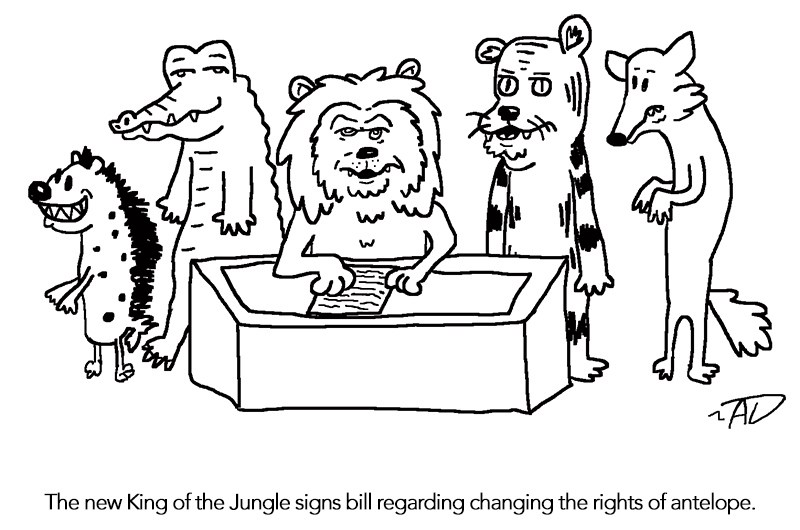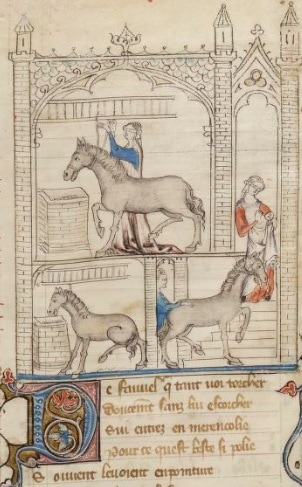|
“The creatures outside looked from pig to man, and from man to pig, and from pig to man again; but already it was impossible to say which was which.” ― George Orwell, Animal Farm (1945) These are remarkable times indeed. If George Orwell could see some of the unfortunate events transpiring in the world today, he might facepalm before rolling over in his grave. Interestingly, there appears to be something persistently animalistic about politics.
However, this is not the first time that politics has become so ‘beastly’. I’d like to draw your attention to a remarkable manuscript from the early fourteenth century, the Roman de Fauvel (1316). The volume satirises the French king Philip IV ‘the Fair’, and it serves as an admonishment to king Philip V who inherited the Crown in 1317. In the first book of Fauvel, Lady Fortune decides to take the horse Fauvel (whose name is an acronym referring to the Vices Flattery, Avarice, Vileness, Variability, Envy, and Laxity) from his stable, and she places him in charge of the royal palace, similar to how the Roman emperor Caligula supposedly made his horse a minister. Unlike Caligula’s horse, Fauvel uses this power to upend the balance of the nation, heralding even the very Apocalypse. Yet the people who have the power to stop him (such as royalty, nobility, the clergy, etc.) want nothing more than to… pet him? For, as the story goes, “there was not a person who was not preparing to gently curry Fauvel" (N'i a nul qui ne s'appareille / De torchier Fauvel doucement).
Sven GinsWould you like Sven Gins to reveal more about his ongoing research into the curious manuscript that is the Roman de Fauvel? Please register here to secure your seat.
0 Comments
Your comment will be posted after it is approved.
Leave a Reply. |
AuthorsThis blog is run by the students who organise the CMEMS Conference. Every Monday, Wednesday and Friday, one of the students will post a small sneak preview indicating the content of their conference presentation. Categories
All
Archives |


 RSS Feed
RSS Feed
